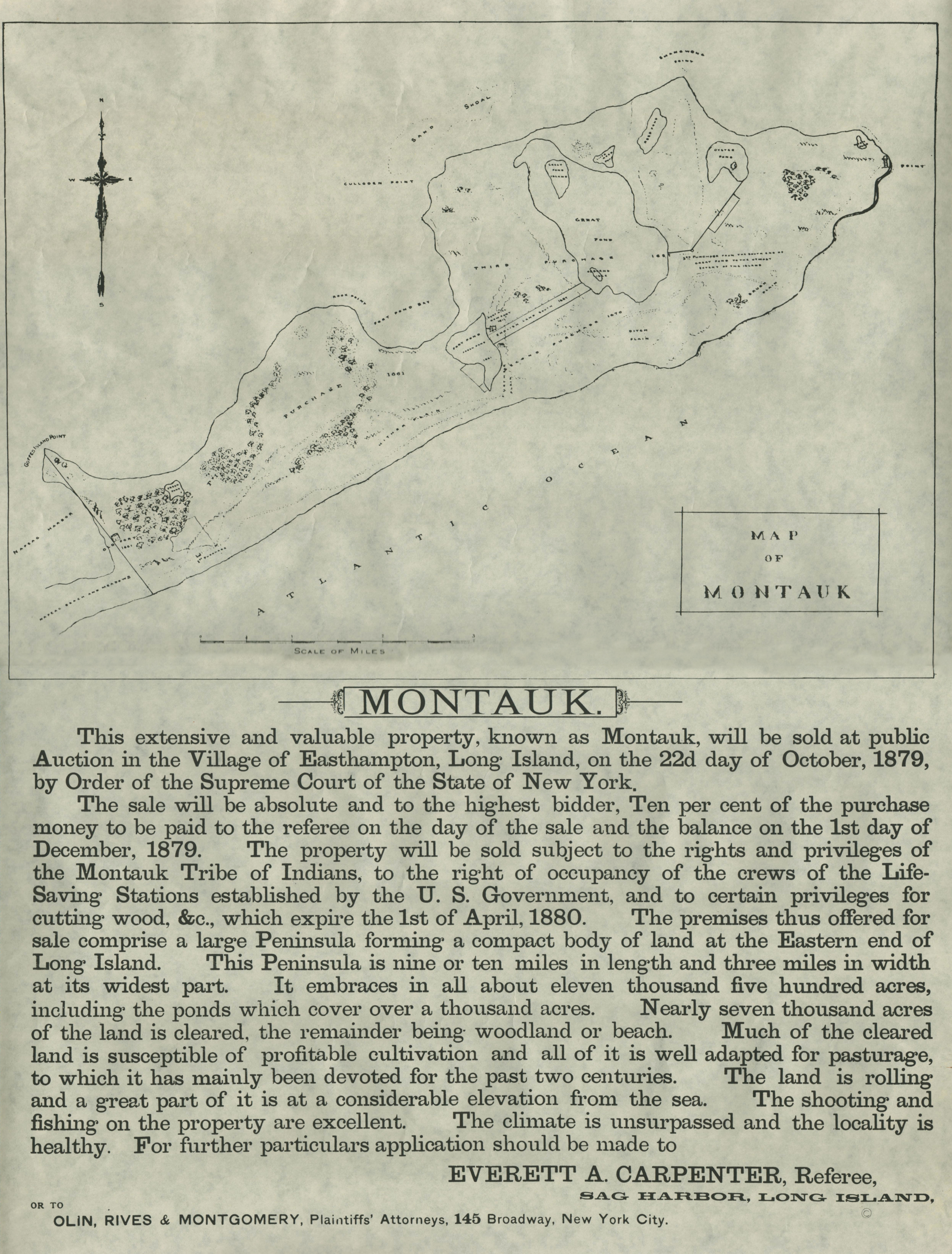
“A great price for a great waste of sand” – that’s how the New York Times described the auctioning off of Montauk for $151,000 in 1879. White settlers from East Hampton had used Montauk for pastureland for more than two centuries, building First, Second, and Third House for shepherds and visitors. Now Montauk’s new owner was Arthur Benson of Brooklyn, a wealthy business magnate who liked to hunt and fish but also harbored a desire to develop a resort.
Note that the flyer specifies that the auction sale would be “subject to the rights and privileges of the Montauk Tribe of Indians.” Instead of respecting that, Benson set about displacing Montauketts who were entitled to stay on at Indian Fields by selling them land in Freetown, East Hampton, instead. The railroad magnate Austin Corbin also got into the act, hiring guards to close Montauk off to communal uses as he tried to create a port at Fort Pond Bay using property he’d bought from Benson’s family.
It was against this backdrop that the Montauketts – who were by now more dispersed, less abundant, and less “pure”-blooded than previously — asked the State Supreme Court to void deeds to Benson’s property and return land at Indian Fields, North Neck, and part of Hither Woods. Instead, on October 11, 1910, Judge Abel Blackmar formally declared the Montaukett tribe to be “extinct.” The decision left the Montauks with no legal standing – a challenge they face to this day.
“The tribe had been in decline for decades, said Blackmar,” John Strong wrote in The Montaukett Indians of Eastern Long Island. “All Benson did was to give it a final ‘death blow.’”
#Montaukhistory #Montauklibrary #ArthurBenson #Montauketts

Reply or Comment